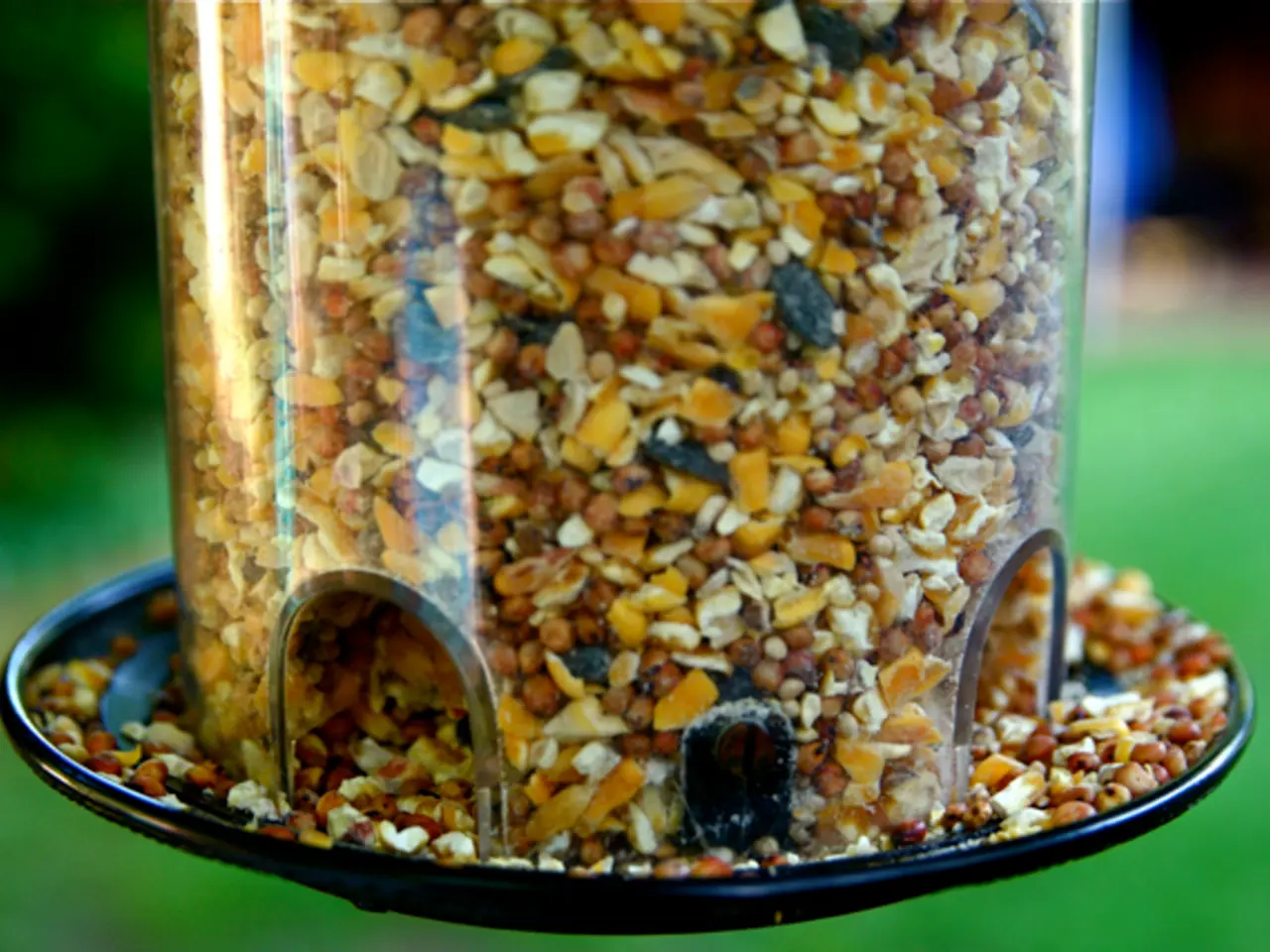Grain yields under threat in Baden-Württemberg: farmers express concern about possible crop failures
Heavy Rain Pose Challenges to Baden-Württemberg's Grain and Rapeseed Harvest
Excessive rain in Baden-Württemberg, Germany, is posing significant challenges to the region's grain and rapeseed harvest. According to the Baden-Württemberg Agricultural Association (BLHV), a large portion of fields remain untouched in many places due to the dry weather followed by heavy rain.
The heat and drought of the summer have caused stress to the crops, but the exact impact on the grain and rapeseed harvest is not yet specified. However, excessive rain can have detrimental effects on these crops, as highlighted below.
Effects on Corn (Maize)
Excessive rain can lead to reduced yields, quality issues, and soil and crop health problems. Waterlogged soils limit oxygen availability to roots, causing root stress and reduced nutrient uptake. Excess moisture during the flowering and kernel development stages can result in poor pollination and kernel abortion, reducing grain yield. Prolonged wet conditions can delay planting or harvesting, affecting growth stages and consequently lowering yield.
High humidity and wet conditions increase the risk of fungal diseases like Fusarium and Aspergillus, which can produce mycotoxins harmful to humans and livestock. Excess moisture can cause kernels to swell and crack, impacting grain quality and storage. Higher grain moisture at harvest requires additional drying costs to prevent spoilage. Soil compaction from heavy rainfall and tractor use reduces soil aeration and root growth, while nutrient leaching can reduce soil fertility, affecting crop development during the season.
Effects on Rapeseed (Canola)
Excessive rain can also reduce seed yield, degrade seed quality, and impact soil and environmental conditions. Waterlogging can cause root hypoxia, limiting plant growth and reducing seed yield. Excess water during flowering can impair pollinator activity, reducing seed set. Standing water can lead to increased plant mortality or uneven field emergence.
Excess moisture and humidity favor fungal diseases such as Sclerotinia stem rot, blackleg, and downy mildew, which damage plant tissues and reduce oil content and seed quality. Delays in harvest due to wet fields increase risks of seed shattering and losses. High moisture levels in harvested seeds can reduce oil content and complicate storage. Nutrient leaching can also affect rapeseed crops, particularly nitrogen and potassium, which are important for seed development. Waterlogged conditions may affect soil microbial communities, indirectly impacting plant nutrient uptake and health.
Regional Context – Baden-Württemberg, Germany
Baden-Württemberg has a temperate climate with moderately high annual rainfall. Excessive rain events, especially during spring and early summer, can pose challenges for field work and crop development. Clay-rich soils, common in parts of this region, are prone to waterlogging under heavy rain. Local farming practices, drainage systems, and soil management strategies influence how these effects manifest. Climate change is expected to increase the frequency of extreme precipitation events, potentially exacerbating these issues.
Summary
In summary, excessive rain negatively influences both corn and rapeseed production in Baden-Württemberg by reducing yields, degrading grain and seed quality, causing operational delays, and increasing costs related to drying and disease management. Farmers in Baden-Württemberg must often employ drainage improvements, disease-resistant varieties, and adaptive cropping schedules to mitigate these challenges.
The Baar, Hegau, and Lake Constance regions in Baden-Württemberg have a large portion of their grain and rapeseed harvest still unharvested. Bernhard Bolkart, the President of BLHV, warned that what remains standing in the fields is at acute risk in terms of quality. Farmers in the Franconian Plateau, Hohenlohekreis, Neckar-Odenwaldkreis, Kraichgau, Rhine-Main, and parts of the Main-Tauber district are under time pressure due to the current weather conditions.
First signs of sprouting are visible in the grain, indicating that it is beginning to germinate on the stalk before harvest. This germination reduces the grain's baking ability and market value. The excessive rain is causing a decrease in the protein content of the grain, which is a crucial parameter for processing, especially for bread grain. High humidity and heat can promote fungal diseases that significantly impair the quality of the grain harvest, as reported by the Ministry of Agriculture in Stuttgart. Wilted, rolled-up leaves are a visible sign of the impact on corn and potatoes.
Farmers in the Filder Plain are affected by the heat and drought of the summer, causing corn and potatoes to be affected. However, the excessive rain is not directly mentioned as a problem for the Filder Plain in terms of the first signs of sprouting, protein content, or the protein content's impact on baking ability and market value.
The excessive rain in Baden-Württemperg is not only causing operational delays but it can also have detrimental effects on the grain and rapeseed harvests, as inundated soils can lead to reduced yields, poor grain quality, and increased disease prevalence.
The current heavy rain is causing first signs of sprouting in the grain, indicating that it is beginning to germinate on the stalk before harvest, reducing its baking ability and market value.








